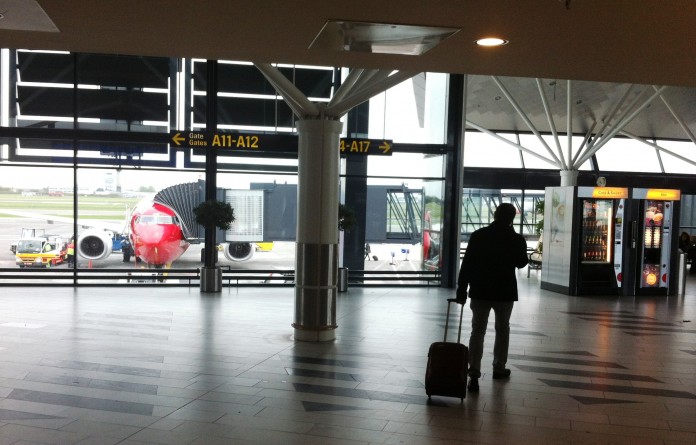“Demand will continue to grow in 2016, but supply and competition will grow even faster, especially on eastbound long-haul routes. As a result, we expect business-class fares will stay flat; economy fares will fall by 2% for regional travel and by 1% for intercontinental flights.”
This is the American consulting firm Advitos forecast on how Business Travel airfares will develop in 2016 in Europe.
“Buyers need to decide whether to allow travelers to use the increasing number of non-stop long-haul services available to them or opt for cheaper indirect services. Price-sensitive travel programs may like indirect options that save money but cost time. Airlines know their non-stop services face intense competition from indirect flights, so they’re careful not to over-price,” says Advito. Travelers face paying a €16 surcharge for global distribution system (GDS) bookings made with Lufthansa Group airlines (Lufthansa, Austrian Airlines, Brussels Airlines and SWISS).
They can avoid the fee by booking directly with Lufthansa through its consumer and travel agent portals.
Lufthansa’s decision may lead to content fragmentation. Travelers and agents may have to shop multiple channels to find the best deal. The GDSs already do a good job of presenting competing fares, providing one-stop shopping and serving the interests of travel buyers. Companies could avoid the surcharge by booking travelers on Lufthansa-operated flights through a code-share partner like United Airlines, which doesn’t carry the fee. For certain city pairs, corporate travel programs could move their business from Lufthansa to a rival airline that doesn’t charge a booking fee. Companies might even try to renegotiate their contracts with Lufthansa Group.
Of course, companies could choose to book directly with Lufthansa. But this option risks compromising the integrity of their managed travel programs. It makes data capture more difficult and complicates the provision of services like duty of care and crisis management support. The position of other airlines is unclear. Most have remained silent. Delta Air Lines’ talk of its “good relationship” with its GDS partners suggests no immediate plan to follow Lufthansa.
Travel buyers are best served when they and their TMC have access to a booking process that includes transparency and price comparison. Today, the GDS is still the best solution. Direct booking channels don’t provide travelers, their companies and the TMCs that serve them true comparison shopping or pricing transparency.
The Delta Air Lines/Virgin Atlantic joint venture has made the London-U.S. market, previously dominated by the American Airlines/British Airways joint venture, much more competitive. Virgin has launched a Heathrow-Detroit service and added flights to Atlanta, Los Angeles, Miami, New York JFK and San Francisco. However, to expand its transatlantic operations the airline has withdrawn from Cape Town, Mumbai, Tokyo and Vancouver, weakening competition on all of those routes.
Growing transatlantic competition means the joint ventures are offering higher negotiated discounts. But in return they expect corporate clients to drop rival joint ventures from their air programs.
Extra transatlantic seats are also good news for spot buyers: companies whose policy is to buy the best fare on the day. Discounted fares stay available longer, meaning average fares fall. Early bookers will find some good prices, but these will disappear as flights start to fill up.
Air travel is booming in Europe, despite the Greek crisis threatening the euro zone economy. Demand rose 4.9% year-over-year during the first five months of 2015. Lower oil prices put more money in consumers’ pockets and may be the cause for this increase.
Low-cost carriers (LCCs) continue to dominate supply in the short-haul market, especially Ryanair, easy Jet and now Norwegian. Hungarian carrier Wizz Air and Spain’s Vueling are also growing fast. Europe’s three large legacy airline groups are all trying to expand their low-cost divisions outside their home markets. IAG has Vueling, Air France-KLM has Transavia and Lufthansa Group has Eurowings, which will replace Germanwings.
On long-haul routes, the Gulf carriers and Turkish Airlines continue to add seats to existing services. Emirates is especially well-placed with 62 Airbus A380s in its fleet (and 78 more on order). These airlines are also opening routes with smaller long-range aircraft such as Boeing 787s.
Capacity is also increasing on transatlantic routes, especially to London. Low-cost carriers have entered this market, with Norwegian and Canada’s WestJet both launching services. Long-haul LCC flights aren’t yet attracting significant numbers of corporate travelers, but the carriers’ premium products may appeal to them.
Intense competition in both the short- and long-haul markets has been good news for buyers. Fares have fallen slightly on short-haul routes as traditional airlines adopt LCC-style pricing. Lufthansa, for example, is lowering its base fares. But more carriers are adding charges for ancillaries. KLM and Air Berlin have introduced baggage fees on short-haul flights. And many legacy airlines have retained the surcharges introduced a few years ago to offset oil price rises— even though fuel costs have dropped dramatically.
Fares to destinations east and south of Europe are also down, thanks to competition from airlines in the Middle East and now China. European carriers have had to lower their fares to compete. They must also take care not to charge too much for ancillaries that the Middle Eastern airlines offer for free.
Chinese carriers intend to increase their presence in the European market. Capacity between Europe and China has doubled over the past 10 years, and 16 Chinese cities now enjoy direct links to Europe (including Moscow and St. Petersburg).
The four Chinese airlines operating to Europe (Air China, China Eastern, China Southern and Hainan Airlines) are all improving service quality. Fares are falling on routes with significant competition, but expect to pay more on new non-stop services between cities previously served only indirectly,” says Advito.
Advitos Recommendations
• Consider booking all-inclusive airfares (including seat reservation and a checked bag) launched by LCCs to attract business travelers. They’re often good deals.


























